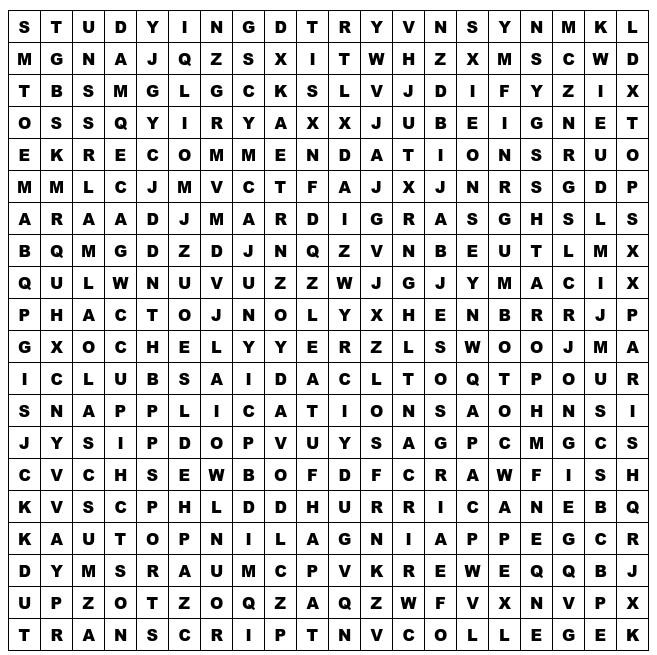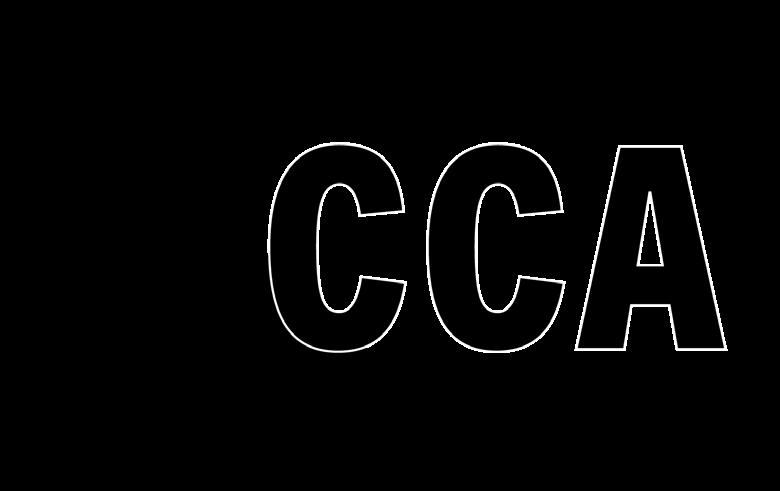




High school graduating class of: College graduating class of:
College applications are more than transcripts and test scores. They tell your story. This journal is a place for you to document your story as you live it.
Use this space to track the highlights and challenges of high school. This will be the blueprint for your college applications and help the schools you apply to understand who you really are.
Consider creating an email address for your college search.
- Schools send lots of emails and this will help keep all your college search information in one place and avoid clogging up your school email account.
- Make sure the email address is professional. Create a file on your computer to save information you may need later for your application.
“Education is the most powerful weapon that you can use to change the world.”
- Nelson Mandela
ACADEMICS: Focus on your studies and don’t be afraid to ask for help if you need it. Your transcript starts with freshman year, so keep your grades up.
EXTRACURRICULARS: Make sure to have activities outside of the classroom. It can be sports, clubs, volunteering or an after school job.
EXPLORATION: Try new things whenever you can. Be open-minded and explore activities, people and places. Learn about your community and yourself.
Your transcript is your official academic record and a key piece of your college application. It shows every course you’ve taken and your grades.
Color in states in which you think you’d like to live.
Who is my favorite person?
Who is my favorite artist?
What is my favorite music?
What is my favorite animal?
What is my favorite place?
YOU COULD BE ANYTHING,

List the things you like most about yourself. What are the things that make you, YOU?
I couldn’t make it without you! Place photos here:

College
Andouille
Beignet
Pelican
Applications
Mardi
Gras
Recommendations
Transcript
Gator
Magnolia
Gumbo
Essay
Snowball
Parish
Cajun
Sports
Studying
Act
Crawfish
Hurricane
Lagniappe
Krewe
Major Clubs
How are your grades so far?
Which class is easiest?
Which class is hardest?
Where can I improve?
Extra notes?
“All our dreams can come true, if we have the courage to pursue them.”
- Walt Disney
Stay focused on completing academic requirements for college admission and research what it takes to pay for college. College applications are right around the corner!
1. Sign up for Test Prep sessions at the LCCA!
2. Meet with your college counselor. If you do not have a college counselor, meet with a member of our LCCA team.
3. Have your parent/guardian attend a program related to college, either through your school or the LCCA.
4. Attend college visits in your school/city, and attend local college fairs.
5. Visit colleges if you can, but if you can’t attend in person, visit virtually.
6. Take the PSAT/SAT/ACT.
7. Check the Common Application Essay Prompts and explore possible topics for your college essay.
8. Research scholarship opportunities and financial aid.
· How often should I meet with you to make sure I’m staying on track?
· How far in advance should I start thinking about college?
· Should I consider taking advanced placement courses?
· Which classes will best prepare me for college?
· Am I on schedule to graduate on time?
A college fair is a gathering of college representatives who are looking for the right students for their institutions. They want to spread the word about their college to high school students — and they want to talk to you.
College fairs may be held at your school, a conference center or a local community center, and the colleges may be local or from around the country. The representatives usually sit at booths or tables and hand out brochures and cards. They can tell you about everything from academics to campus life at their college, and they can also answer more-general questions about college.
• Find out which colleges will be at the fair (a list may be posted on the fair’s website) and write down the names of the ones you want to learn about.
• Make a list of any questions you have.
• Bring your list, a pen, paper and a bag to hold college brochures.
• Use the email address you created for your college search when filling out any forms.
• Get a map of the fair and plan a route that will take you to the booths of all the colleges on your list. If there is no map available, do a quick survey of the room to locate your colleges.
• Visit booths and ask college representatives questions. For example, you can ask, “What kind of student are you looking for?” or “What makes your campus special?”
• Take a minute to jot down any information you think is important before moving on to the next booth.
• Check out some of the other booths when you’re done with the colleges on your list. You may stumble onto a great college you hadn’t considered.
• Attend an information session, if any are offered. Typical topics include applications and financial aid. These sessions are good opportunities to get expert advice.
PSAT: The Preliminary SAT, also known as the PSAT/NMSQT® (National Merit Scholarship Qualifying Test), is a practice version of the SAT exam. You can only take the PSAT once per year, and many students take the test in both 10th and 11th grade.
SAT: The SAT is a three-hour multiple-choice test created and administered by the College Board. It covers reading, writing, and math, and is used to determine students’ preparedness for college.
ACT: The ACT exam, or American College Test, is a national standardized test that serves as a measurement of aptitude and critical thinking. The ACT test covers four academic skill areas: English, mathematics, reading, and scientific reasoning.


FAFSA: Free Application for Federal Student Aid
TOPS: : Is state merit-based scholarships available for Louisiana residents/ students who attend any of the Louisiana Public Colleges and Universities, schools of the Louisiana Community and Technical College System, approved Proprietary and Cosmetology Schools, or institutions of the Louisiana Association of Independent Colleges and Universities.
Financial Aid: Money to help pay for college or career school. Grants, work-study, loans, and scholarships help make college affordable.









LCCA (Louisiana Center for College Access): The Louisiana Center for College Access (LCCA) provides free college readiness and preparedness services to students and families from Louisiana.
Louisiana TOPS: Taylor Opportunity Program for Students
TOPS is a program of state scholarships for Louisiana residents who graduate from High School in Louisiana and attend either a 2-year or 4-year, college, university, cosmetology school, or trade school in Louisiana.
CSS Profile: Unlike the FAFSA form, the CSS Profile is not free. The CSS Profile is managed by College Board, and cost $25 for the first school, and $16 for each additional school. Ask your counselor if you are eligible for a fee waiver for the CSS Profile.
FAFSA: Free Application for Federal Student Aid How the Financial Aid Process Works, link
Video: How to Fill Out the FAFSA Form
Official SAT Practice Test (College Board): Download eight official SAT practice tests for free. For practice on the digital SAT.
Khan Academy (SAT): Get personalized practice recommendations for the skills you’ll need for the SAT, plus eight official practice exams from College Board.
ACT Academy: This guide was designed to make understanding all things ACT as simple as possible. With information about ACT test dates, fee waivers, and test prep, you’ll find everything you need to succeed on test day.
Improve your ACT Score by 2 Points in 20 minutes:
Early Decision: November 1st. or November 15th. Early decision plans are binding: A student who is accepted as an Early Decision (ED) applicant must attend the college if admitted.
Early Action: : November 1st. or November 15th. Early Action (EA) plans are non-binding: Students receive an early response to their application but are not required to commit to the college.
Regular Decision: : The first two weeks of January* Regular Decision (RD) is the regular application deadline, usually Jan. 1. Applying Regular Decision means you are not applying in the early round, and you will receive your admission decision in the spring –usually around late-March into early-April.
FAFSA: Application opens October 1st. FAFSA is the Free Application for Federal Student Aid and June 30 is the federal deadline. Make sure to check your state’s deadline. Some states have hard deadlines, while others suggest dates to make sure you get priority consideration for college money.
CSS Profile: The College Scholarship (CSS) Profile deadline varies from school to school. Most, however, are between January 1st and March 31st for regular decision students. If you’re applying under Early Action or Early Decision, it may be due sooner.
*Actual deadlines may vary by school
Circle the characteristics that matter most to you.
ATHLETICS
ROTC
ENGINEERING DESIGN
2-YEAR PRIVATE URBAN
OTHER CHARACTERISITICS
Majors: ___________________ 2yr or 4 yr: _______________
Location: Close to home_____ Far away_____ Short drive______
Size: Small_________ Medium__________Large____________
Social Life: Active________ Relaxing ______Middle__________
Athletics: Division________Club________Intramural________
Greek Life: Y______ or N______
Clubs and Activities:___________________________________
Study Abroad: ______________________________________
Think about how these schools fit into your plans. What makes them fit for you?
School: ___________________________________________
Interesting academics: ________________________________
Right size: _________________________________________
Social fit: ________ _________________________________________________
Tuition and cost of attendance: ___ _________________________________________________
Housing: ______________
Financial Aid: _________
Scholarship: ____________
Location: __________________________________________
Early Decision Deadline: _______________________________
Early Action Deadline: _____________________________
Regular Decision Deadline: _____________________________
Application fee: _____________
Fee waiver: _______________
School: ___________________________________________
Interesting academics: ________________________________
Right size: _________________________________________
Social fit: ________ _________________________________________________
Tuition and cost of attendance: ___ _________________________________________________
Housing: ______________
Financial Aid: _________
Scholarship: ____________
Location: __________________________________________
Early Decision Deadline: _______________________________
Early Action Deadline: _____________________________
Regular Decision Deadline: _____________________________
Application fee: _____________
Fee waiver: _______________
School: ___________________________________________
Interesting academics: ________________________________
Right size: _________________________________________
Social fit: ________ _________________________________________________
Tuition and cost of attendance: ___ _________________________________________________
Housing: ______________
Financial Aid: _________
Scholarship: ____________
Location: __________________________________________
Early Decision Deadline: _______________________________
Early Action Deadline: _____________________________
Regular Decision Deadline: _____________________________
Application fee: _____________
Fee waiver: _______________
School: ___________________________________________
Interesting academics: ________________________________
Right size: _________________________________________
Social fit: ________ _________________________________________________
Tuition and cost of attendance: ___ _________________________________________________
Housing: ______________
Financial Aid: _________
Scholarship: ____________
Location: __________________________________________
Early Decision Deadline: _______________________________
Early Action Deadline: _____________________________
Regular Decision Deadline: _____________________________
Application fee: _____________
Fee waiver: _______________
School: ___________________________________________
Interesting academics: ________________________________
Right size: _________________________________________
Social fit: ________ _________________________________________________
Tuition and cost of attendance: ___ _________________________________________________
Housing: ______________
Financial Aid: _________
Scholarship: ____________
Location: __________________________________________
Early Decision Deadline: _______________________________
Early Action Deadline: _____________________________
Regular Decision Deadline: _____________________________
Application fee: _____________
Fee waiver: _______________
Transcripts: Your high school transcript is a complete record of your academic achievements in high school. It starts with the first grading period of your first year of high school and is updated each term until you graduate. Official transcripts are sent to colleges directly from high schools.
Test Scores: ACT or SAT standardized test score.
Essay: Many colleges and universities require a college admissions essay as part of the application process. These personal statements allow students to describe their academic achievements, their strengths, and other personal aspects that can help admissions officers see them as unique individuals.
Recommendations: A letter of recommendation for college admission is a short document typically written by a teacher, counselor, or mentor highlighting your strengths and potential contributions to a school. You must carefully choose who will write your letters of recommendation and be thoughtful and responsible when asking for them.
Resume (Optional): A college admissions resume is a document describing a student’s academic and job-related skills and experiences and may be expected as part of your college admissions application. A resume demonstrates to a college that you’re capable of academic success through the experiences and achievements gained in high school.
How are your grades so far?
Which class is easiest?
Which class is hardest?
Where can I improve?
High school student resumes give colleges a snapshot of your accomplishments, extracurriculars, hobbies, and work history. They can also be a useful tool for prepping for a college interview or to give to the teachers who are writing your letters of recommendation.
Heading with your name, address, and e-mail
High school information with your graduation date, GPA, class rank, and SAT/ACT scores
Academic awards, publications, honors, and other achievements
Coursework (summer programs, college courses, or other specialized workshops that do not appear on your high school transcript)
Extracurricular activities
Community service
Work experience
Hobbies
Special skills (e.g. foreign language fluency or HTML expertise)
Think about a story that defines who you are. What do you want to tell colleges about yourself?
Who to ask? Teachers, counselors, employer, advisors, and mentors.
When to ask? Spring of Junior Year
Who will I ask?
Do something you care about!
Volunteer: _______________________________________
Work: __________________________________________
Camp: __________________________________________ _______________________________________________ _______________________________________________
Pre-College Program: _____________________________
Explore: ________________________________________
Have Fun: _______________________________________
If you are going on vacation, tack on a few college visits along the way! If you are not, use your down time to sign up for virtual college tours of the schools that interest you. YouVisit, YouTube and even Amazon Prime have free opportunities for you to catch a glimpse of colleges you may not be able to visit in person.
“Nothing can dim the light which shines from within.”
- Maya Angelou
Have your college essay completed before returning to school, this will save you loads of stress in the fall.
Know your admission contact at every college/university on your list. Ask two or more teachers to write letters of recommendation for you.
Make sure you are meeting with your counselor regularly and that all materials are sent to prospective colleges in a timely manner.
Obtain copies of your transcript (grades through the end of your junior year) for your records but also to apply for any scholarships.
Apply to colleges using the college or universities’ websites (opens August 1st) or via the Common Application. Submit any required documents!
Submit your Federal Application for Federal Student Aid/FAFSA (available October 1st) and the CSS Profile (if needed-available October 5th). Apply for all scholarships which are applicable.
Send your ACT/SAT scores to LOSFA (Louisiana Office of Student Financial Aid) in order to be eligible for TOPS (Taylor Opportunity Program for Students).
Make your college decision!
School _________________ Location: _________________
Tuition _________________ Scholarship: _______________
Net Price: ________________
Notes: __________________________________________ ----------------------------------------------------------------------------------
School _________________ Location: _________________
Tuition _________________ Scholarship: _______________
Net Price: ________________
Notes: __________________________________________ ----------------------------------------------------------------------------------
School _________________ Location: _________________
Tuition _________________ Scholarship: _______________
Net Price: ________________
Notes: __________________________________________
Do you know how to wash your own clothes, manage budget, seek medical care? Create a list of things you still need to learn more about or learn how to do over the summer.

ACT: The ACT is a standardized test taken by high school students and used by colleges to ascertain their preparedness for higher education. Some students take the SAT instead.
Admission Requirements: Individual schools have unique requirements for students who want to attend the institution. These can include minimum GPAs, standardized test scores, and extracurricular experience.
Admission Counselor: Performs duties to identify and recruit prospective students. The incumbent plans and participates in the implementation and recruitment of prospective students using marketing strategies and public relations skills, and counsels prospective students and parents regarding the admission process.
Affinity Groups: Groups formed around a shared identity or common goal to build community among members of non-dominant groups and to foster inclusion and awareness in the broader university.
Associate’s Degree: An associate degree is an introductory undergraduate degree. Associate degree programs require two years of full-time study and are commonly offered by community colleges and vocational schools.
Advanced Placement: AP courses offer students the opportunity to earn college credit by taking rigorous courses in high school. Students who demonstrate mastery of the material on a national standardized end-of-course exam – a score of 3 or higher out of 5 – may be eligible for college credit for the course.
Bachelor’s Degree: A bachelor’s degree is an undergraduate academic degree that usually requires four years of full-time study to complete. It can lead to myriad entry-level positions after graduation.
Coalition Application: Created to make it easier for students from underrepresented groups to apply for college.
Composite Score: The SAT is scored on a 1600-point scale. This composite score is often referred to as your “SAT score” and is the sum of 2 section scores: Math and Evidence-Based Reading & Writing. Each of your section scores will fall between 200 and 800 points.
College Major: A term used in undergraduate studies, a major refers to a student’s chosen area of study, such as accounting or history.
College Minor: In addition to declaring a major in undergraduate studies, many learners declare a minor. These require fewer credits than majors but allow for directed study.
Commuter Student: A student, full-time or part-time, who does not live on campus-owned property. Typically a commuter refers to a student living at home or with his or her parents, but can also mean any student who lives off campus.
CSS: Unlike the FAFSA form, the CSS Profile is not free. The CSS Profile is managed by College Board, and cost $25 for the first school, and $16 for each additional school. Ask your counselor if you are eligible for a fee waiver for the CSS Profile.
Dual Enrollment: The simultaneous enrollment of a student at both high school and college in which the student receives credit on both transcripts.
Demonstrated Interest: How colleges assess how interested a student is in attending.
Early Decision: ED is a binding agreement that states if a student receives admittance to a particular college, they are obligated to attend.
Early Action: EA is a nonbinding process that allows learners to gain early admission to a school, well before those applying through the regular admissions process.
Final Transcript: A transcript received directly from the issuing institution (whether on paper and still in the envelope or a certified electronic copy) that is properly signed/ authenticated. This is the final senior year official transcript.
Financial Aid: Financial aid, whether offered by a government entity, college or university, or private organization, refers to the money students receive to help offset the cost of college.
Grants: These are sources of financial aid that generally do not have to be repaid and can come from the government, your college, and private or nonprofit organization.
Greek Life: Comprising fraternities and sororities, Greek life is a system of membership organizations that provide students with opportunities to take part in social and philanthropic activities.
International Baccalaureate: A rigorous, two-year program that results in personal and academic development and, upon successful completion, a globally recognized diploma.
Letters of Recommendation: Many colleges require letters of recommendation from previous teachers, employers, or others who can speak to a learner’s preparedness for higher education.
LOSFA: Louisiana Office of Student Financial Assistance is a Program of the Louisiana Board of Regents, administering the state’s scholarship and grant programs, and the state’s Internal Revenue Code Section 529 college savings program.
Master’s Degree: After completing a bachelor’s degree program, a student may decide to pursue a master’s degree for advanced study in their field. Master’s degree programs usually take 1-3 years to complete.
Mid-Year Transcript: A form submitted by your school counselor indicating your academic progress for the first half of your senior year.
NCAA Clearinghouse: An organization that determines whether prospective college athletes are eligible to play sports at NCAA Division I or Division II institutions.
Official Transcript: Is a complete record of your academic achievements in high school. It starts with your first year of high school and is updated each term until you graduate. These are sent to colleges directly from high schools.
Private Loans: Education funding from banks, credit unions and online lenders instead of the federal government. Private loans are best used to fill funding gaps after maxing out federal loans.
Private University: A college or university that often operates as an educational nonprofit organization. It does not receive its primary funding from a state government. These schools are smaller than public schools with smaller class sizes.
Public University: A college or university primarily funded by a state government. Generally they are larger than private schools and have larger class sizes. You will likely have a larger selection of majors than you would at a private school.
Regional University: Offers a full range of undergraduate programs and provide graduate education at the master’s level. However, they differ by offering few, if any, doctoral programs.
Residence Halls: A place where students live at a college or university.
Regular Decision: The majority of students apply to colleges through the regular decision process. Look for regular decision deadlines when evaluating potential schools. Most regular decision deadlines are in January.
SAT: Functioning similarly to the ACT, the SAT is a standardized test used by many colleges to evaluate whether a student is prepared for postsecondary learning.
Scholarships: A scholarship is financial support awarded to a student, based on academic achievement or other criteria that may include financial need. Scholarships reduce the cost of education and do not require repayment. Universities, foundations, professional associations, and employers commonly offer scholarships to college students.
Student Loans: Money you borrow from the federal government or a private lender to help pay for college costs, like tuition, supplies, books and living expenses. Federal student loans typically have lower interest rates and more flexible repayment options than private loans. Borrowers should exhaust student loans from the federal government before applying with private lenders.
Non-Secular University: An institution not affiliated with or restricted to a particular religious group.
Subsidized Student Loans: A federal student loan that doesn’t accrue interest while you’re in college or during other periods of authorized non-repayment, such as a grace period. Subsidized loans don’t require credit history or a cosigner. They are a part of financial aid and only undergraduate students with demonstrated financial need are eligible. Use these loans first if you can.
Superscore: The average of your best scores from each subject from multiple test attempts. Your superscore is never lower than a single composite score.
Student Life: Student Life refers to the program that supports campus activities, student clubs and organizations, student government, and other special events like the annual graduation and scholarship ceremonies.
Support Services: Also called student services, lends support to learners to help them develop and achieve success.
TOPS: Is state merit-based scholarships available for Louisiana residents/students who have attended any of the Louisiana Public Colleges and Universities, schools of the Louisiana Community and Technical College System, approved Proprietary and Cosmetology Schools, or institutions of the Louisiana Association of Independent Colleges and Universities.
Urban University: Urban campuses are located in cities. Some urban campuses are spread throughout a city while others are self-contained within a city. Many urban colleges offer off-campus learning experiences.
Unsubsidized Loans: A federal student loan that starts to accrue interest as soon as it is disbursed. Undergraduate, graduate and professional students are eligible for unsubsidized loans, which don’t require credit history or a co-signer. Because interest costs on unsubsidized loans are higher, eligible students should take out subsidized loans first.
Unweighted GPA: The most common way to measure academic performance in high school. They are measured on a scale of 0 to 4.0 and do not take the difficulty of your courses into account.
Weighted GPA: Is calculated after adding extra points for honors or Advanced Placement courses. This means that an A in these courses receives 5 points rather than 4 and a B receives 4 rather than 3, so the overall GPA can exceed 4.0.